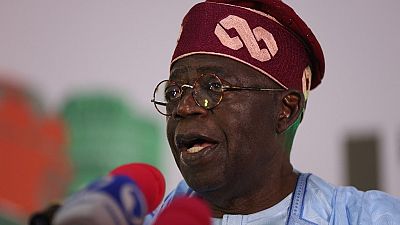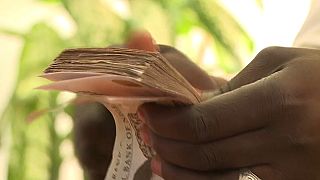Nigeria
Nigeria's new president Bola Tinubu called on the country's citizens to show patience and accept "sacrifices" in exchange for future investment, after the abolition of fuel subsidies sent petrol, transport and food prices soaring, Monday.
"I have painfully asked you, my compatriots, to sacrifice a little more for the survival of our country. For your trust and faith in us, I assure you that your sacrifice will not be in vain," he said in an address to mark Nigeria's National Democracy Day.
"The government I lead will repay you with massive investments in transport infrastructure, education, regular electricity supply, healthcare and other public services," he added.
Elected in February in a disputed election, Bola Tinubu announced as soon as he took office on 29 May the end of fuel subsidies, which were costing the state billions of euros and forcing it to borrow massively to keep petrol prices artificially low.
Nigeria may be one of Africa's biggest oil producers, but it swaps its crude worth billions of dollars for imported fuel because of the failure of its state refineries.
The end of subsidies has caused fuel prices to triple, leading to a surge in transport costs and higher food and electricity prices for many Nigerians using petrol generators.
Nigerians already must contend with inflation of around 20%, sporadic petrol shortages and an unpredictable electricity supply that forces people to use generators or even go without power for several hours for lack of money.
Experts believe that the abolition of subsidies was more than necessary to promote development in Africa's most populous country, but critics believe that the government has not taken enough measures to limit the impact.
Since the end of subsidies, a liter of petrol has risen from 190 naira (41 cents) to around 540 naira (1.17 dollars).
Before the subsidies were abolished, four out of ten Nigerians were living below the poverty line, according to the United Nations, which has warned that more than a quarter of them are likely to run out of food this year.












00:57
Nigeria: Tinubu's effort to resturcture the ailing oil sector
Go to video
Nigerian president declares state of emergency, suspends governor, other officials
03:06
Nigeriens frustrated by ongoing fuel shortage
03:24
Nigeria's GDP growth accelerates to 3.84% in fourth quarter of 2024
Go to video
Nigerian lawmakers approve $200 million to offset shortfall from US health aid cuts
01:00
Transparency urged by BRDC on 30,000 tons of diesel from Russia